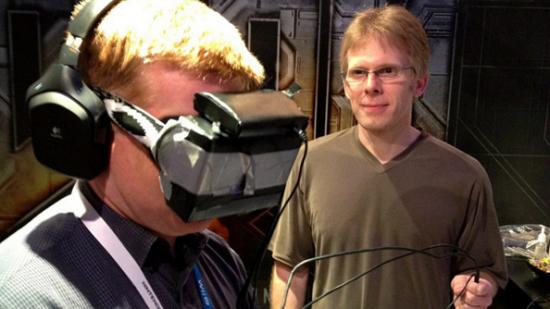Last week, Zenimax opened up a can of worms on Facebook and Oculus VR when they claimed that Oculus infringed on ZeniMax’s intellectual property rights during the development of the Oculus Rift. Now, Oculus have sent back their own response.
Predictably, they concede nothing and argue that Zenimax are being both opportunistic and dishonest about the agreements arising from Oculus’ work with then-ZeniMax employee, current Oculus CTO John Carmack.
John Carmack was an early supporter of Oculus Rift and a collaborated with the young VR startup in its earliest stages. In ZeniMax’s formulation, this makes them partial owners of the development work that’s gone into Oculus Rift to date. They also argue that Oculus founder Palmer Luckey acknowledged ZeniMax’s IP rights in a signed non-disclosure agreement.
“Well before the Facebook transaction was announced, Mr. Luckey acknowledged in writing ZeniMax’s legal ownership of this intellectual property. It was further agreed that Mr. Luckey would not disclose this technology to third persons without approval. Oculus has used and exploited ZeniMax’s technology and intellectual property without authorization, compensation or credit to ZeniMax,” ZeniMax said in a statement.
Now Oculus have made a statement of their own, and it is the only public statement they’re making at this time:
We are disappointed but not surprised by Zenimax’s actions and we will prove that all of its claims are false. In the meantime, we would like to clarify a few key points:
- There is not a line of Zenimax code or any of its technology in any Oculus products.
- John Carmack did not take any intellectual property from Zenimax.
- Zenimax has misstated the purposes and language of the Zenimax non-disclosure agreement that Palmer Luckey signed.
- A key reason that John permanently left Zenimax in August of 2013 was that Zenimax prevented John from working on VR, and stopped investing in VR games across the company.
- Zenimax canceled VR support for Doom 3 BFG when Oculus refused Zenimax’s demands for a non-dilutable equity stake in Oculus.
- Zenimax did not pursue claims against Oculus for IP or technology, Zenimax has never contributed any IP or technology to Oculus, and only after the Facebook deal was announced has Zenimax now made these claims through its lawyers.
- Despite the fact that the full source code for the Oculus SDK is available online (developer.oculusvr.com), Zenimax has never identified any ‘stolen’ code or technology.
- Both sides haven’t really showed their cards yet. A number of Oculus’ points here seem to speak more to the spirit of what ZeniMax are up to rather than their legal rights or lack thereof.
This is likely a particularly murky situation because, if Carmack had anything like a typical IP agreement with ZeniMax, the company would have a claim to any work he did while he was a ZeniMax employee.
Furthermore, things tend to get murky when a technical employee leaves one company for another. Companies want to own the thoughts that pass through such employees’ heads, and usually their contracts stipulate that. However, it comes down to what you can prove in a court of law.
If ZeniMax were hoping for a quick settlement and a share of the Facebook riches, however, Oculus’ statement would seem to dash those hopes. In a word, Oculus’ offer is nothing. Not even the the fee for the gaming license…
